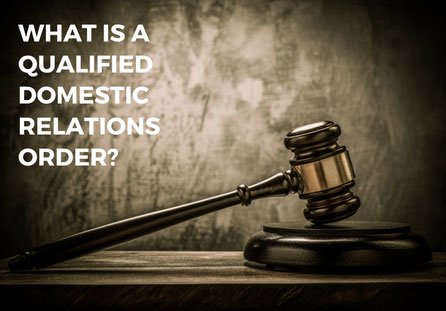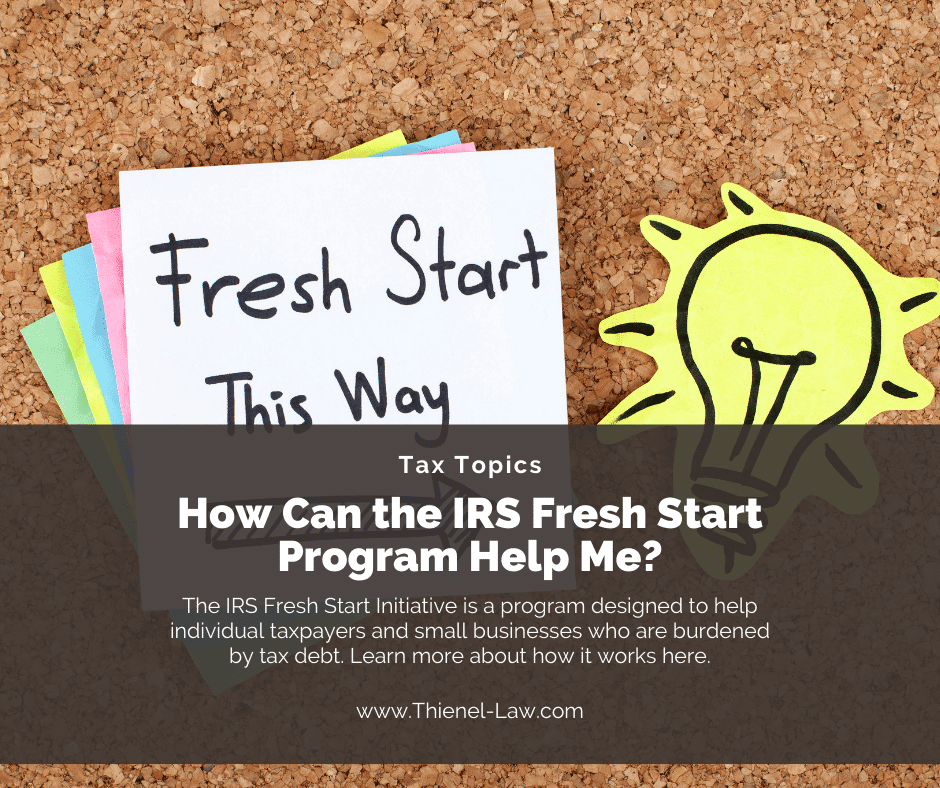
Tax Law Posts
A QDRO is a decree or order recognizing another person such as a former spouse, child or dependent as an “alternate” or “alternative” payee to a retirement plan. The alternative payee can receive all or part of the benefits under the plan.
Imagine receiving a notice from the Internal Revenue Service (IRS) about a tax audit or finding out that you owe a significant amount in back taxes. Navigating the complex world of tax laws and regulations can be overwhelming, but there’s one professional who can help you through these challenges: a tax attorney.
The Internal Revenue Service (IRS) has announced new tax laws and changes for 2023 that could have a significant impact on your wallet. It's crucial to stay informed and prepared, especially when it comes to filing tax returns for the 2023 tax year. Keep reading for a breakdown of the key updates you need to know.
On August 7, 2022, the United States Senate Passed the Inflation Reduction Act (“the Act”) along party lines by a vote of 51 to 50. The House of Representatives passed the bill without changes, and President Biden signed it into law on August 16, 2022. Experts and politicians disagree about whether the Act raises or lowers the deficit.
Qualified domestic relations orders (QDROs) have been around for quite a few years, but few people have a working knowledge of how these documents work. A QDRO might seem of little importance when negotiated, but the long-term implications on an individual’s retirement finances can be significant.
You might want to talk to a Maryland tax attorney about the tax implications of a proposed QDRO when going through a family court matter like a divorce or legal separation that involves the distribution of one or more retirement plans. Here are some FAQs about Qualified Domestic Relations Orders.
The Internal Revenue Service (IRS) has announced inflation adjustments for over 60 tax provisions, most of which will affect individual income tax filers in 2023. Get up-to-date with the changes that could impact your tax return.
The 2020 tax season was frustrating, confusing, and overwhelming for many taxpayers. Pandemic relief bills resulted in numerous changes for tax filings. Some changes were limited to the 2020 tax years, while other changes were extended to 2021 and 2022.
If you had trouble keeping up with the changes for tax filings, you were not alone. Many tax preparers and IRS agents had trouble keeping everything straight.
If you’re delinquent on your taxes, there is little you can do to escape paying what you owe. While it might be tempting to run from your tax problems, the IRS will eventually find you.
Fortunately, the IRS has created a Fresh Start Initiative offering relief to individual taxpayers and small businesses. However, as with most government programs, the rules about how to qualify for tax relief can be confusing.
Tax evasion is the intentional failure to pay federal taxes owed to the government. Tax avoidance is taking lawful actions to lessen tax liability to maximize after-tax income. Learn more here.
On March 17, 2021, the Treasury Department and IRS announced they would again provide special tax filing and payment relief to individuals and businesses in response to the ongoing COVID-19 pandemic. Read on to learn more.
Paying taxes during retirement is a harsh reality that many people are not prepared for when they retire. The key to reducing tax liability during retirement is early planning. If you wait until you retire, it may be too late to take advantage of some retirement-planning strategies.
Individuals and businesses in Maryland have state and federal solar incentives available to encourage them to invest in solar PV (photovoltaics). A Maryland tax attorney can answer your questions about what’s available in 2021 for solar tax credits.
President-elect Joe Biden’s tax plan is more moderate than the proposed plans of some of the other Democratic primary candidates but less conservative than the Tax Cuts and Jobs Act of 2017 of President Trump.
This year brought many challenges that most people have never had to face before. A Maryland business tax attorney can help you evaluate your situation and answer your questions about what you can write off as a business expense in 2021.
A Limited Liability Company (LLC) is organized under state laws. Many companies choose a Maryland LLC as their business entity because it provides limited liability protection from personal liability. State laws govern the operation of an LLC in Maryland. However, the Internal Revenue Code provides alternatives for how an LLC is taxed for the income it earns.
It's tempting to procrastinate when you get a letter from the Internal Revenue Service (IRS) that you owe back taxes, but that is the worst thing to do. If you ignore collection efforts from the IRS, things will only get worse, and you will owe more in interest and penalties.
The Tax Cuts and Jobs Act (TCJA) received a lot of attention when it passed in 2017, but with everything that has happened since, it would be a good idea to take another look at the TJCA. Some provisions of the tax reform act did not go into effect immediately, so you might want to talk to a Maryland tax attorney and revisit the TJCA.
The Internal Revenue Service (IRS) has extended Tax Day from April 15, 2020, to July 15, 2020. However, what does that mean for individuals and businesses? Our Maryland tax attorney answers common questions about the COVID-19 federal tax extensions in this blog.
A sole prop is the simplest and most flexible corporate form – but the personal liability that attaches to all business operations can potentially create a host of problems later down the road.
Are you fighting to defeat IRS penalties? If so, new court-approved ways to defeat IRS penalties can help you keep the money you earned instead of paying it to the federal government. As a Maryland tax attorney, I continually monitor changes in the tax code that benefit my clients and help devise strategies to avoid penalties and decrease overall tax liability.
Nobody likes paying taxes, especially when the IRS heaps on penalties for an honest mistake. Watch this video to discover a few tips on getting the IRS to back down on those penalties. Have tax questions? Talk with Maryland tax attorney, Steve Thienel.
Owners who list their Maryland property on AirBnB should know a major change in the tax laws for short-term occupancy taxes. The change took effect on June 1, 2019. AirBnB has noted the tax on its website. Many property owners fear that the mandatory occupancy tax will reduce the number of guests who book their property, but owners of hotels and other businesses already subject to state occupancy taxes were for the change.
The IRS views digital currency as property. Therefore, the applicable tax code for cryptocurrency is typically the portion of the code that relates to capital gains or losses. However, some transactions involving digital currency may be treated as income for the owner. Now that Bitcoin and other forms of digital currency have gained in popularity, and increased substantially in value, the IRS is interested in ensuring that taxpayers report cryptocurrency correctly.
Tax Attorney Steve Thienel discusses time-honored tactics for reducing stress around tax time.
Individuals who work or live in Maryland are typically subject to state taxes based on their residency status. Therefore, your residency status can have a significant impact on whether you owe state income taxes. If Maryland demands you file a tax return and pay state income taxes even though you were not a resident, contact a Maryland tax attorney to discuss your options for challenging the state’s claim of residency.
For taxpayers who do not pay taxes throughout the year or underpay, they may face a large tax penalty when they file their tax returns. If you are going broke paying estimated tax penalties, working with a Maryland tax attorney to identify problems with your estimated tax payments could help eliminate those penalties.
The deductions you may take for interest on your boat loan has changed somewhat since the Tax Cuts and Jobs Act (TCJA), but the deductions have not been eliminated. Below is a brief discussion from Maryland tax attorney, Steve Thienel, of some changes in the tax reform bill that impacts interest deductions for a boat. If you follow the current rules in the Tax Cuts and Jobs Act, you may still benefit from certain deductions.
As a musician, you have expenses that are unique to your industry. Utilizing the tax deductions available for musicians is essential to reducing your tax liability. This is especially true since some of the deductions musicians may have used in past tax years were eliminated with the passage of the Tax Cuts and Jobs Act.
In this article, we discuss several of the unique income tax planning issues for musicians and how musicians can take advantage of tax laws to reduce income tax liability.
Business owners who use a portion of their home for business may benefit from using the home office deduction when preparing their income taxes. Claiming a deduction for a home office often reduces tax liability. However, the IRS has strict guidelines for claiming a home office deduction on your tax return. A Maryland tax attorney can help you determine if you can claim a home office deduction and the best way to maximize tax benefits for this deduction.
Updated 2020 - The rules have changed on how you can deduct your business-related auto expenses on your S-Corp taxes under the Tax Cuts & Jobs Act (TCJA). A Maryland tax attorney can help.
















![[Updated 2020] Do You Owe Back Taxes? Here's What You Can Do To Get The IRS to Go Easy on You.](https://images.squarespace-cdn.com/content/v1/639b5b2c4098ba4df6e6dc92/1673206167265-SNE8993AWIJW9DZ0T164/Dealing%2Bwith%2BBack%2BTaxes.png)
![The Tax Cuts & Jobs Act Revisited [2020 Tax Update]](https://images.squarespace-cdn.com/content/v1/639b5b2c4098ba4df6e6dc92/1673207425967-E2RRW3ZE4GQLMDDS8UQU/Tax%2BCuts%2B%26%2BJobs%2BAct%2B-%2BMaryland%2BTax%2BAttorney.png)

![Sole Proprietorship or LLC – What is the Best Business Structure for Tax Purposes? [Updated 2022]](https://images.squarespace-cdn.com/content/v1/639b5b2c4098ba4df6e6dc92/1673034772536-0SERQ5KXSEBCO34IG8OJ/Sole%2BProprietorship%2Bor%2BLLC_.png)

![[VIDEO] Tax 101 – Four Ways to Defeat IRS Penalties](https://images.squarespace-cdn.com/content/v1/639b5b2c4098ba4df6e6dc92/1673043948366-G191ZMNJQAVHRJYMHFTU/2%2BTaxes%2B101%2BVideo%2BImage.png)


![[Video] Tax 101 - Five Tips for Making Tax Time Easier Next Year](https://images.squarespace-cdn.com/content/v1/639b5b2c4098ba4df6e6dc92/1673049831533-ZMKCVDJBTAPNCWD3W05P/image-asset+%281%29.jpeg)





![[UPDATED] Can I Deduct my Business-Related Auto Expenses on my S-Corp Taxes?](https://images.squarespace-cdn.com/content/v1/639b5b2c4098ba4df6e6dc92/1673125209453-36WYRWCR2XUY7KT5J0RR/1.png)